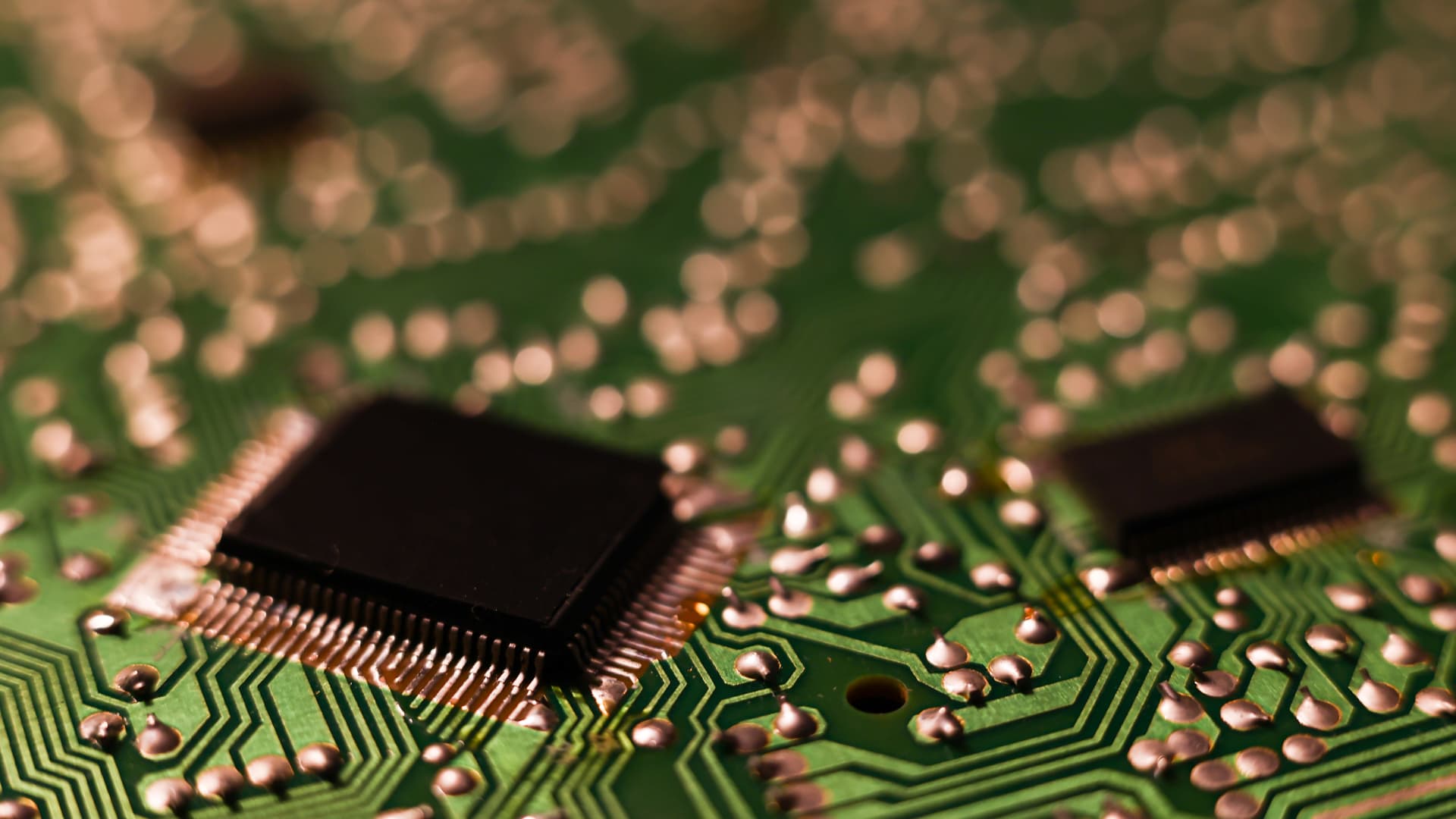
Big Tech names have been getting a lot of love this year, with investors piling into the so-called Magnificent Seven stocks: Alphabet , Amazon , Apple , Meta Platforms , Microsoft , Nvidia and Tesla . One portfolio manager, however, is shifting his focus to other tech players — particularly small mid-cap names. “I would probably balance between large cap stocks and start to be more constructive on small mid-cap stocks by increasing my exposure to them,” Karen Kharmandarian, senior portfolio manager at Thematics Asset Management, told CNBC Pro. “Valuations for these companies are also more attractive,” he added. Kharmandarian oversees around $650 million in assets under Thematic Asset Management’s AI and Robotics Fund, which seeks to find “attractive gems” within the tech space. The fund contains around 40 stocks of which roughly 20% are small mid-cap players. “My suspicion is that [this allocation] will continue to rise and get closer to 30%,” said Kharmandarian, who is also chairman and chief investment officer at the asset management firm. His comments come despite the sharp gains registered by big tech stocks which pushed the price-to-earnings ratio of the S & P 500 index to around 20 times. By contrast, the ratio is trading below 14 times when the seven Big Tech stocks are excluded, he noted. The stocks gained traction earlier this year off the back of their strong balance sheets, diversified businesses, and ability to weather market cycles, according to Kharmandarian, who was speaking on Nov. 7. Year-to-date, the S & P 500 is trading up around 19%. “The S & P 500 is trading above [its] long-term average and fair value given [rising] interest rates, but if you look at the tech space and pick the right companies, fundamentally speaking, you can find attractively valued companies to gradually add to your portfolio. It’s just a question of discipline and selectivity,” the portfolio manager said. To identify the potential winners, Kharmandarian said he is looking favorably at themes — and stocks — with technological capabilities that are “ubiquitous, pervasive and versatile” across markets. Cybersecurity Cybersecurity is one theme on Kharmandarian’s radar given the pressing need for companies to improve their ability to protect against fraud and attacks. Splunk — which enables businesses to monitor and analyze their data in an effort to minimize the risk of hacks and resolve technical issues — is one of the biggest cybersecurity holdings in his fund. Kharmandarian turned bullish on the company after a change in management in 2021 saw a seamless transition from a license-based model to a subscription one. The company has since been “delivering quite nicely on their own expectations.” Splunk received a takeover offer from Cisco Systems for $157 per share in a cash deal worth around $28 billion in September . The completion of the deal is expected in the third quarter of next year. Another stock in Kharmandarian’s AI and Robotics Fund fund is cybersecurity firm Crowdstrike . “We built our position over time and it has become quite a significant position today and it has already delivered some attractive returns in 2023,” he said. Electronic Design Automation Another theme on Kharmandarian’s watchlist is electronic design automation — specifically companies designing the latest generations of semiconductors. Cadence Design Systems and Synopsys — the companies designing the latest chips for likes of Nvidia and Advanced Micro Devices — are market leaders. “They have 85% combined market share, high 7o% to 80% gross margins and 30% to 35% operating margin. In difficult markets, they outperform, in up markets, they outperform. They have technological moat barriers to entry IP – basically, everything we like. I mean they are really critical in the value chain,” Kharmandarian said. Medical Automation Elsewhere, Kharmandarian is keeping tabs on medical automation — especially the use of artificial intelligence algorithms to identify issues and design new drugs for specific diseases. The portfolio manager named biotech companies Recursion Pharmaceuticals , BenevolentAI and BioXcel Therapeutics as key players within the theme. Recursion Pharmaceuticals, for instance, uses machine learning algorithms to assess how its database of genes interacts with chemical compounds. Meanwhile, Benevolent AI leverages artificial intelligence to better understand disease mechanisms and drug discovery, while BioXcel uses it to develop medicines in neuroscience and immunotherapy.
